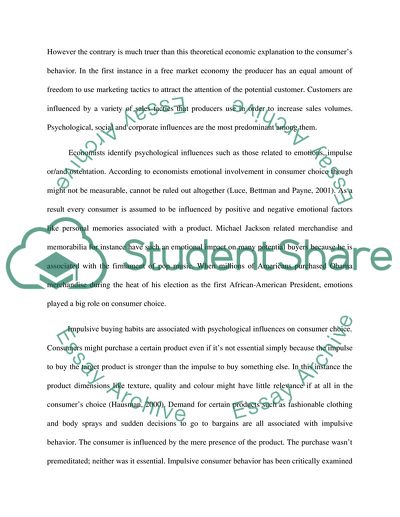Cite this document
(The Psychological and Corporate Influences on Consumer Choice Coursework, n.d.)
The Psychological and Corporate Influences on Consumer Choice Coursework. https://studentshare.org/psychology/1560303-critically-consider-the-ways-in-which-economists-have-recognised-the-psychological-social-and-corporate-influences-on-consumer-choice
The Psychological and Corporate Influences on Consumer Choice Coursework. https://studentshare.org/psychology/1560303-critically-consider-the-ways-in-which-economists-have-recognised-the-psychological-social-and-corporate-influences-on-consumer-choice
(The Psychological and Corporate Influences on Consumer Choice Coursework)
The Psychological and Corporate Influences on Consumer Choice Coursework. https://studentshare.org/psychology/1560303-critically-consider-the-ways-in-which-economists-have-recognised-the-psychological-social-and-corporate-influences-on-consumer-choice.
The Psychological and Corporate Influences on Consumer Choice Coursework. https://studentshare.org/psychology/1560303-critically-consider-the-ways-in-which-economists-have-recognised-the-psychological-social-and-corporate-influences-on-consumer-choice.
“The Psychological and Corporate Influences on Consumer Choice Coursework”. https://studentshare.org/psychology/1560303-critically-consider-the-ways-in-which-economists-have-recognised-the-psychological-social-and-corporate-influences-on-consumer-choice.


